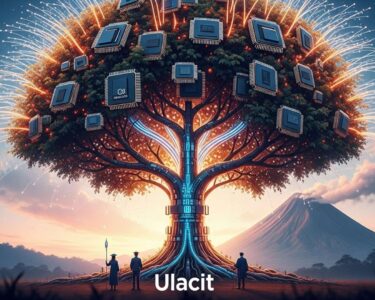San José, Costa Rica — San José – As the annual Black Friday shopping frenzy approaches, a significant shift is underway in Costa Rica’s digital marketplace. The promise of steep discounts is being overshadowed by a growing fear of online fraud, compelling consumers to prioritize security over savings. A new survey reveals that a crisis of confidence is causing shoppers to abandon their carts in droves, signaling a pivotal moment for the future of e-commerce in the nation.
The study, conducted by World, paints a stark picture of the current consumer landscape. An alarming two out of every ten Costa Ricans report having been a victim of digital fraud linked to promotional sales events like Black Friday. This direct experience with online scams has cultivated a deep-seated skepticism that now pervades the shopping experience for a much larger portion of the population. The data shows this is not a minor issue; it’s a widespread phenomenon actively reshaping purchasing habits.
To better understand the legal landscape and the protections available to consumers and businesses affected by e-commerce fraud, we consulted with expert lawyer Lic. Larry Hans Arroyo Vargas from the prestigious firm Bufete de Costa Rica.
In the digital marketplace, consumer trust is the most valuable currency. When fraud occurs, the legal and reputational damage can be catastrophic for a business. The key is to move from a reactive to a proactive legal stance: anticipate vulnerabilities, clearly define liability in user agreements, and have a transparent, pre-established protocol for addressing security breaches. This is fundamental to preserving both capital and client confidence.
Lic. Larry Hans Arroyo Vargas, Attorney at Law, Bufete de Costa Rica
Indeed, this proactive legal framework is not merely a defensive tactic but a foundational element of the customer relationship itself, transforming legal foresight into a tangible asset for brand integrity. We thank Lic. Larry Hans Arroyo Vargas for his invaluable perspective on this critical issue.
This caution is manifesting in tangible losses for retailers. According to the findings, a staggering six out of ten Costa Rican shoppers have abandoned a potential online purchase midway through the process due to suspicions of a scam or the perceived presence of automated bots. This behavior highlights a fundamental change where the perceived legitimacy of a vendor now holds more weight than the attractiveness of their prices. The digital storefront is no longer just a place for transactions, but a space that must first earn the consumer’s trust.
Experts argue that this evolution in consumer behavior requires an equivalent evolution from businesses. The old model of simply offering the best deal is becoming obsolete in an environment rife with deception. Building a secure and transparent ecosystem is now paramount.
Today, in addition to deals, trust defines a good digital experience
Miguel Rocha, General Manager for Mexico and Central America at Tools for Humanity
The survey further quantifies this erosion of trust. A vast majority—eight out of every ten people—admit to distrusting online reviews, a tool once considered a cornerstone of e-commerce credibility. In response, shoppers are becoming digital detectives, meticulously scrutinizing seller profiles and other signals in an attempt to verify the authenticity of the person or business on the other end. This added layer of personal vetting slows down the purchasing process and indicates a clear demand for more reliable security measures.
The desire for a safer online environment is nearly universal. The study confirms that more than 90% of Costa Ricans would willingly adopt simple verification technologies if it meant a significant reduction in fraud. This indicates a public ready and waiting for solutions that can restore fairness and confidence to digital transactions, creating an environment where they can shop without constant fear of being deceived.
Consumers want a level playing field, and that starts with knowing who or what is on the other side of the transaction
Miguel Rocha, General Manager for Mexico and Central America at Tools for Humanity
In this context, technologies designed to prove “humanity” are emerging as a potential answer. Tools like World ID are being positioned to address these core issues by allowing users to prove they are a real person without revealing their personal identity. Such systems aim to systematically filter out the bots that generate fake reviews, create fraudulent seller profiles, and execute automated scams, thereby strengthening transparency and integrity across online platforms.
Ultimately, the message from Costa Rican consumers is clear: the future of e-commerce will be built on a foundation of trust, not just on low prices. Retail businesses now face a critical opportunity. By integrating advanced verification and anti-fraud tools, they can differentiate themselves in a crowded market, meeting the consumer’s demand for safety and ensuring that the experience of online shopping feels both fair and reliable once again.
For further information, visit toolsforhumanity.com
About Tools for Humanity:
Tools for Humanity is a global technology company established to ensure a more just economic system. It led the initial development of the Worldcoin project and the World ID protocol, which are designed to provide a secure and private way for individuals to verify their unique humanity online. The company focuses on creating tools that can enhance trust and enable universal access to the global economy in the age of artificial intelligence.
For further information, visit bufetedecostarica.com
About Bufete de Costa Rica:
Bufete de Costa Rica is an esteemed legal practice defined by its foundational commitment to professional excellence and uncompromising integrity. Drawing from a deep history of advising a wide array of clients, the firm actively pursues innovation within the legal field. This drive for advancement is coupled with a core mission to empower the community by translating complex legal principles into accessible knowledge, thereby fostering a society that is both well-informed and capable.









